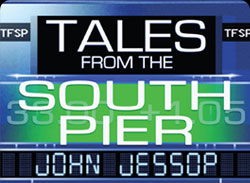Are you an inny or an outy?
The question used to be asked of navels. Nowadays it’s more likely to be about Britain’s status in Europe.
I’m an inny (in both senses). Always have been, and in the later case probably always will be. It just seems right to me that a country that lies a mere twenty-odd miles off the western coast of continental Europe is in every sense, but certainly geographically, a European country.
It is politically, too. We need reliable trading partners. We need friends with common interests. We need neighbours that no longer have any reason to invade us or otherwise make war on us, or in the latter case, vice versa. The world is shrinking in terms of communications and travel, but every country needs to ‘belong’ to a community of kindred spirits. Some European countries, it’s true, have never qualified as such, as a violent history of relations between virtually all the former European powers attests, but that is surely all the more reason to remain in a club whose members have once and for all relinquished war as a means to further their aims.
In other words, the European Union, whatever administrative, bureaucratic and political faults we might ascribe to it, is a noble experiment that needs to become entrenched as a haven for peaceful nations.
This, I realise, is a broad geo-political perspective, but what other, narrower perspectives are strong enough to dictate that we leave?
Immigration? Certainly not. Uncontrolled immigration is a problem that begs for a solution but it is not a uniquely British problem; every country in the EU is affected, to a greater or lesser extent. Whatever the solution may be – and I’m not sure I have one to hand – must be a collective solution.
Anyway, I’m largely in favour of immigration from the economic point of view. Immigrants from Europe, mainly the eastern parts, are not taking jobs away from Britons. They are filling jobs in which Britons are no longer interested. Moreover, the latest government figures show employment at its highest level for years. The British economy is, relatively speaking, in a boom phase (more than can be said for most continental countries). In which case, will someone explain to me precisely what it is that immigrants are doing that is so damaging to the country.
Other objections to the EU find focus on the diminution of national powers. Complainers claim that Britain ‘no longer governs itself’ and now has to bow to unelected apparatchiks in Brussels. The truth of that is arguable, but is Britain so much better at self-government than most other leading European countries? Whenever I travel to Europe – at least the western countries – I see no less affluence and happiness than are apparent to me in Britain, and if that statement can’t be applied universally, nor can it be within Britain itself. A large minority of Scots seem unhappy to be citizens of the United Kingdom, and more than a few residents of Wales would follow their example if they had the economic wherewithal to do something about it. In England, people in the north counties don’t feel that they have the same privileges as those enjoyed in the south. Northern Island remains, truce or no truce, a deeply divided community.
What strikes me about the opponents of Britain’s membership is that they tend to be small-minded people who are consumed by passing, and parochial, issues. They seem to think that a British rebirth as a wholly independent world power is in the cards; in short, a return to the days when Britain bestrode the world as a colossus. It’s no accident that it’s the perpetually discontented and largely xenophobic Tory right-wing that validates the banal utterances of Nigel Farage and his ilk.
The days of empire and glory are not only gone, they will never return. Britain still has much to offer the world, but the decline in its industry will not easily be reversed, and certainly not without collaboration from others, and the cheap raw materials that once nurtured it when it was at its apex are no longer available. The British Empire may have been all-powerful once, but it was also the most short-lived in the imperial pantheon, lasting less than a hundred years from start to finish. It was unsustainable then, and there is no creating a new one.
The civil servants in Brussels (and Strasbourg) and the extra layer of parliamentary governance can admittedly be irritatingly self-serving. The euro is misbegotten without a union of the economies that trade in it, and may well fail for that reason. The French can be duplicitous, but no more so than they likewise consider us to be. And if the Germans sometimes appear to be effortlessly superior in cultural and commercial matters, although that has changed of late years. Europe as a political body may from time to time represent a viper’s nest of conflicting interests. But all in all the experiment – if that is what it is – must be continued, and with Britain (to paraphrase Lyndon Johnson) inside the tent pissing out rather than outside the tent pissing in.
I’m nervous about the upcoming referendum, but the British voters collectively usually come to the common sense conclusion. It is, after all, one of our national characteristics.
It is also one that Europe needs.
There, now you know where I stand.


Be First to Comment